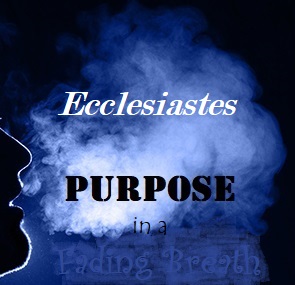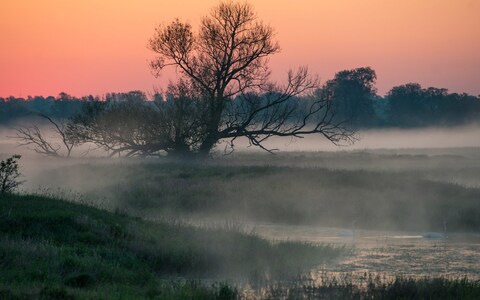A Blessed Curse
By Anthony Casperson
8-29-20
The concept of life being a fading breath, a fleeting morning mist, has been on my mind a lot recently. Preaching through Ecclesiastes will do that to you.
Often when we think of the shortness of this life under the sun, it comes with a sense of unfairness. Humanity could do so much good if we just had more time on this planet. Solomon himself often speaks of how undesirable it is for one person to work so hard only to, after they die, have to give it to another who did nothing to earn it.
But this perspective has the ability to sideline those who deal with more difficult sufferings in their life. Those who experience the full weight of what it means to live in a fallen world. It’s one thing for a wise and mighty king to bewail the succession of his throne. But life’s brevity is something entirely different to the one who literally dwells with the trash, unceremoniously thrown out of society.
The vaporous nature of human existence isn’t only found in Ecclesiastes. Actually, quite a number of biblical books, known as wisdom literature, contemplate this truth. One of these places is the book of Job.
Here’s this man who once had everything a human could want: wealth, prestige, a large and healthy family. But then in one day it was all taken away. Everything but his wife. Even his own body betrayed him as it came to be filled with terrible bursting boils. And he was driven to live in the ash heaps outside of town, literally the dumps.
Some other supposedly wise people he knew came to “help” him. But all they did was tell him that there’s something wrong with him because there’s no way that all of this misery would come to a good person. Job, however, knew that his current circumstances weren’t warranted and spent much of the book calling God to court for maligning the man’s name.
Our thought about life’s brevity comes early in the book of Job. Only one counselor had a chance to speak before our protagonist replies in chapters 6 and 7. And it’s in the latter chapter that we get to Job’s perspective on this fleeting life.
He says that life is search for momentary respite from hard labor. Days are like a weaver’s shuttle flying by, but in the end there is no expectation for anything else. No actual end product. Human existence seems to be nothing but suffering.
In his complaint to God about how unfair it is to have to suffer like this in his life, he longs for the end to come. He loathes his life and is ready for death to come. Living forever would be a cursed thing according to him.
Life in this sin-filled, scarred world would be the curse.
And this is where we come to an interesting point about the fleeting existence that is this life. On the one hand, Solomon shows us that the swift end of life is unfair and unwanted. But on the other hand, Job reminds us that the decay of this fallen life is also unfair and unwanted.
So, which is it? Is the brevity of this life under the sun a curse or a blessing?
Yes.
Yes? How could it be both? How can these seemingly disparate perspectives both be true?
This is where the history of humanity’s fall comes into play. God’s original creation was good, very good. And humans were never meant to die. Death came as a result of sin. It’s part of the reason why this “natural” event that everyone will eventually undergo always feels wrong deep down inside of us. It’s not really natural for humanity in the perfectly created state to die. Death is a curse brought about because of sin.
Point: Solomon.
But at the end of Genesis 3, when the Trinity concerns themselves over the plight of their fallen creation, they come to the conclusion that humanity has to be removed from the garden. Specifically, humanity can’t have access to the tree of life. Not because God desires to withhold anything from us, but rather because if fallen humanity were to live forever, we would suffer the effects of sin’s decay without an end. Death is a blessing in so far as we no longer have to suffer the toil of this life once it happens.
Point: Job.
Death is a curse because humanity was created for eternal life. But in a world under the effects of sin and decay, death is also a blessing because there is an end to the suffering. It’s a blessed curse that God uses until the day when sin will find its end. The glorious day when we who choose to follow him will be given a sinless, sufferingless, eternal life.
The brevity of this life under the sun might not always seem fair to us, but this blessed curse has its purpose too.




